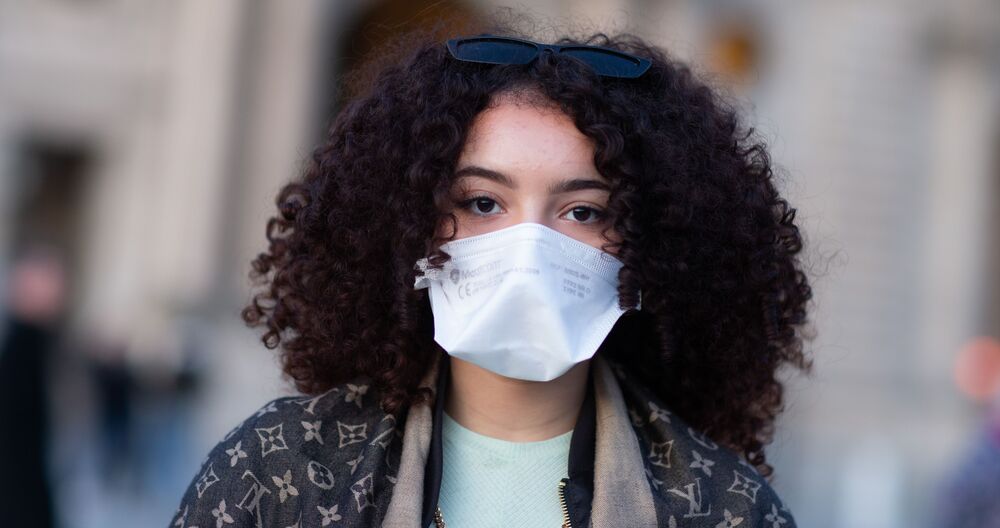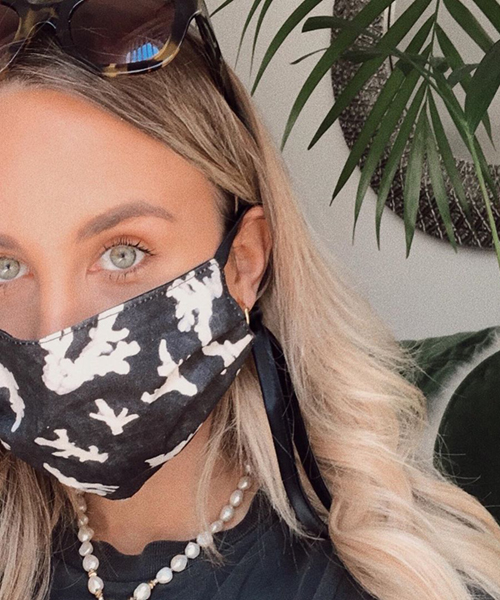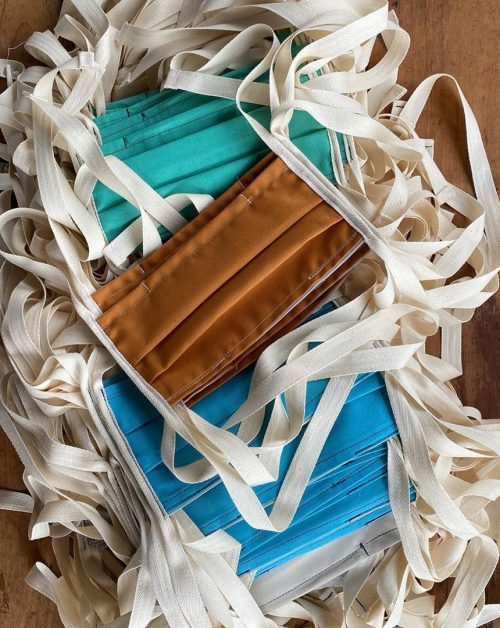
Alas, masks are back, which means the return of the dreaded ‘maskne’ (and just in time for Christmas – thanks a lot, COVID). Luckily, we’ve broken down how to protect and care for our skin while rolling with the new normal.
By Beth Ludolf
-
 1 Think about the material of your mask
1 Think about the material of your maskThe skin underneath the mask can get damp from the trapped breath. This creates a warm, moist environment (the kind that bacteria loves) and can lead to breakouts. Look for masks made from natural, breathable materials like cotton. Make sure it’s tightly woven, you don’t want it to let anything in.
-
 2 Avoid wearing makeup
2 Avoid wearing makeupWhen you’re wearing a mask, the skin is already occluded so adding a layer of makeup is a fast-track to blocked pores, breakouts and irritation. Let your skin breathe and show off your DIY’d brows instead. The mask would rub off your foundation and, anyway, our skin has been loving all these no-makeup days.
-
 3 Cleanse your skin after wearing your mask
3 Cleanse your skin after wearing your maskThe moist *shudders* environment underneath your mask can cause oil and sweat to buildup, cleansing the area can help to prevent breakouts. Just think, you wouldn’t leave the sweat on your skin after a workout. Wash your hands first (obviously), then cleanse the skin. Use something gentle, masks can leave the skin irritated.
-
 4 Ditch any harsh products
4 Ditch any harsh productsIt’s probably not the best time to be using harsh exfoliators and retinol. Masks can increase your skin’s sensitivity so adapt your skincare routine to reflect that. Look for soothing ingredients and aim for hydration. Could be a good time to try out natural ingredients.
-
 5 Use a barrier cream
5 Use a barrier creamThe friction between the mask and the skin can easily lead to irritation, rashes or dryness. Keeping skin hydrated will help but if you’re wearing masks regularly try applying a thick cream to the skin that is in direct contact with the mask. This will act as a barrier and ease irritation.
-
 6 Wash your mask
6 Wash your maskYou should wash your mask after every wear – for obvious reasons – either in the washing machine or by soaking it for 5 minutes in boiling water and detergent. Be mindful of the detergent you use, especially if your skin is easily irritated (the skin on your face is probably more sensitive than your body).
During this uncertain time, we’ll be continuing to create the content you love – whether for distraction, inspiration or to give guidance on wellbeing. If there’s anything you’d like to see (or not see) please contact us on Instagram @treatwell_uk. We hope you keep safe and healthy.






